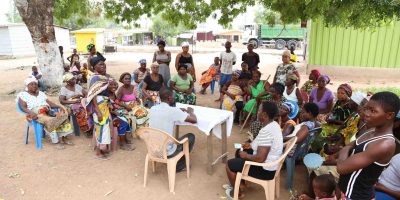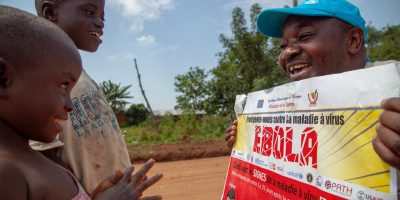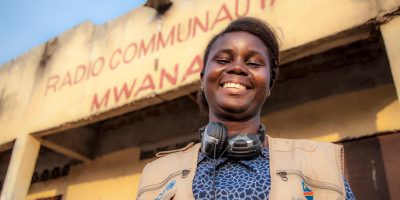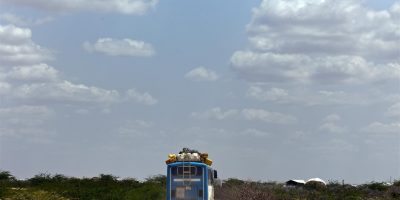SSHAP supports the efforts of the Ugandan National Task Force, Ministry of Health and partners to incorporate anthropological and social science data and analysis in response to the outbreak of Ebola disease caused by the Sudan virus in Uganda. Drawing on experience from previous Ebola outbreaks, the following points highlight how social science can make an effective contribution across the response.
Social science should be integrated into national response structures
Strong coordination will maximise efficiency and avoid duplication of efforts. Social science activities should be embedded in national response structures and necessary data collected and shared in a timely manner.
At the time of writing, social scientists are being deployed into different pillars and by different agencies. We strongly advocate that their work is coordinated under the Strategic Information Research and Innovation (SIRI) pillar and contributes to an Integrated Outbreak Analytics (IOA) approach.1
Social science should contribute to the nuanced explanation of outbreak trends
In the response to Ebola, social and behavioural data is most useful when it is triangulated with epidemiological and other types of data. Research questions should be methodically co-developed as the outbreak evolves, taking into account the evidence needs of response actors in all pillars. It should provide actionable evidence so the response can adapt as outbreak trends and transmission trajectories change.
Areas of inquiry could include, for example, (i) the broader impact of the outbreak on continuity of healthcare services, particularly sexual, reproductive and maternal, newborn and child health; (ii) nosocomial infections and health care workers; (iii) cross-disciplinary approaches to infection prevention and control (IPC); (iv) care-seeking; (v) community-level case detection and strategies for effectively identifying and supporting contacts; (vi) localisation of standard guidance for safe and dignified burials; (vii) contextualisation of community feedback and perceptions data.
Recommendations should be co-created and based on triangulated evidence
Recommendations should be developed from triangulated findings. Recommendations should be co-created with specialists in their fields to ensure that the suggested action is appropriate, feasible and makes a valuable contribution to the response overall. Emerging trends must be well contextualised by existing knowledge. Where relevant, lessons learnt from other outbreaks (including the Ebola epidemic in West Africa and the seven outbreaks since) should be refined and adapted for specific local contexts.
Language used should be neutral and respectful
It is important that all data, including social science data, are presented objectively. Evidence should be presented using neutral and respectful language that cannot be misinterpreted or used to misrepresent or stigmatise the lived realities of affected and at-risk populations.
SSHAP support
SSHAP is a resource for the Uganda National Task Force, Ministry of Health and partners, and we remain available to provide rapid remote support. For example,
- We can provide technical support to social scientists working within the response, including reviewing tools, methods and analyses as well as crafting appropriate language for communicating evidence.
- We can contribute to the triangulation of social science data with other data sources and the rapid synthesis of emerging evidence from studies being conducted on the ground.
- We are developing a series of briefs related to issues as they arise, drawing on strong and established research networks. Briefs can be requested from actors across the response.
- We will continue to collaborate with national response structures and partners and can help support effective coordination.
References
- Carter, S. E., Ahuka-Mundeke, S., Pfaffmann Zambruni, J., Navarro Colorado, C., van Kleef, E., Lissouba, P., Meakin, S., le Polain de Waroux, O., Jombart, T., Mossoko, M., Bulemfu Nkakirande, D., Esmail, M., Earle-Richardson, G., Degail, M. A., Umutoni, C., Ngoundoung Anoko, J., Gobat, N. (2001). How to improve outbreak response: a case of integrated outbreak analytics from Ebola in Eastern Democratic Republic of the Congo. BMJ Global Health, 6, e006736. https://gh.bmj.com/content/6/8/e006736.info
ACKNOWLEDGMENTS
This brief was written by Juliet Bedford (Anthrologica) and was reviewed by Simone Carter (UNICEF), Melissa Parker (LSHTM), Melissa Leach (IDS), Hayley MacGregor (IDS), Megan Schmidt-Sane (IDS), Hana Rohan (LSHTM) and Olivia Tulloch (Anthrologica). It is the responsibility of SSHAP.
ADDITIONAL RESOURCES
Resources and evidence developed by SSHAP relating to this outbreak will be frequently updated and posted on https://www.socialscienceinaction.org/emergency/ebola-sudan-strain-outbreak-in-uganda/
CONTACT
If you have a direct request concerning the brief, tools, additional technical expertise or remote analysis, or should you like to be considered for the network of advisers, please contact the Social Science in Humanitarian Action Platform by emailing Annie Lowden ([email protected]) or Olivia Tulloch ([email protected]). Key Platform liaison points include: UNICEF ([email protected]); IFRC ([email protected]); and GOARN Research Social Science Group ([email protected]).
The Social Science in Humanitarian Action Platform is a partnership between the Institute of Development Studies, Anthrologica and the London School of Hygiene and Tropical Medicine. The Platform is supported by the UK Foreign, Commonwealth and Development Office and Wellcome Grant Number 225449/Z/22/Z. The views expressed are those of the authors and do not necessarily reflect those of the funders, or the views or policies of IDS, Anthrologica or LSHTM.
KEEP IN TOUCH
Twitter: @SSHAP_Action
Email: [email protected]
Website: www.socialscienceinaction.org
Newsletter: SSHAP newsletter
Suggested citation: Bedford, J. (2022). Using social science in response to the 2022 Ebola outbreak in Uganda. Social Science in Humanitarian Action Platform (SSHAP). https://doi.org/10.19088/SSHAP.2022.039
Published October 2022
© Institute of Development Studies 2022
This is an Open Access paper distributed under the terms of the Creative Commons Attribution 4.0 International licence (CC BY), which permits unrestricted use, distribution, and reproduction in any medium, provided the original authors and source are credited and any modifications or adaptations are indicated. http://creativecommons.org/licenses/by/4.0/legalcode






